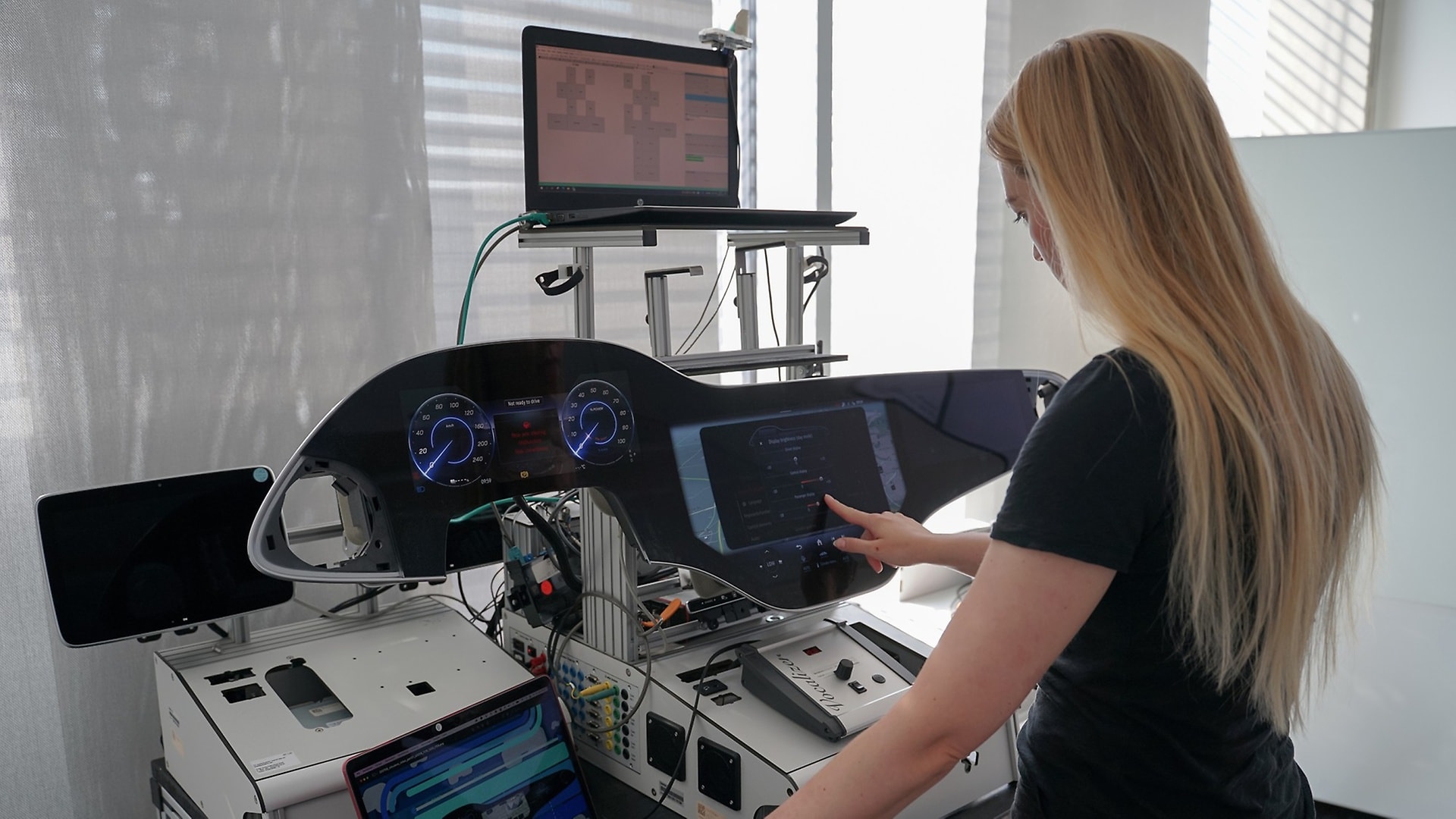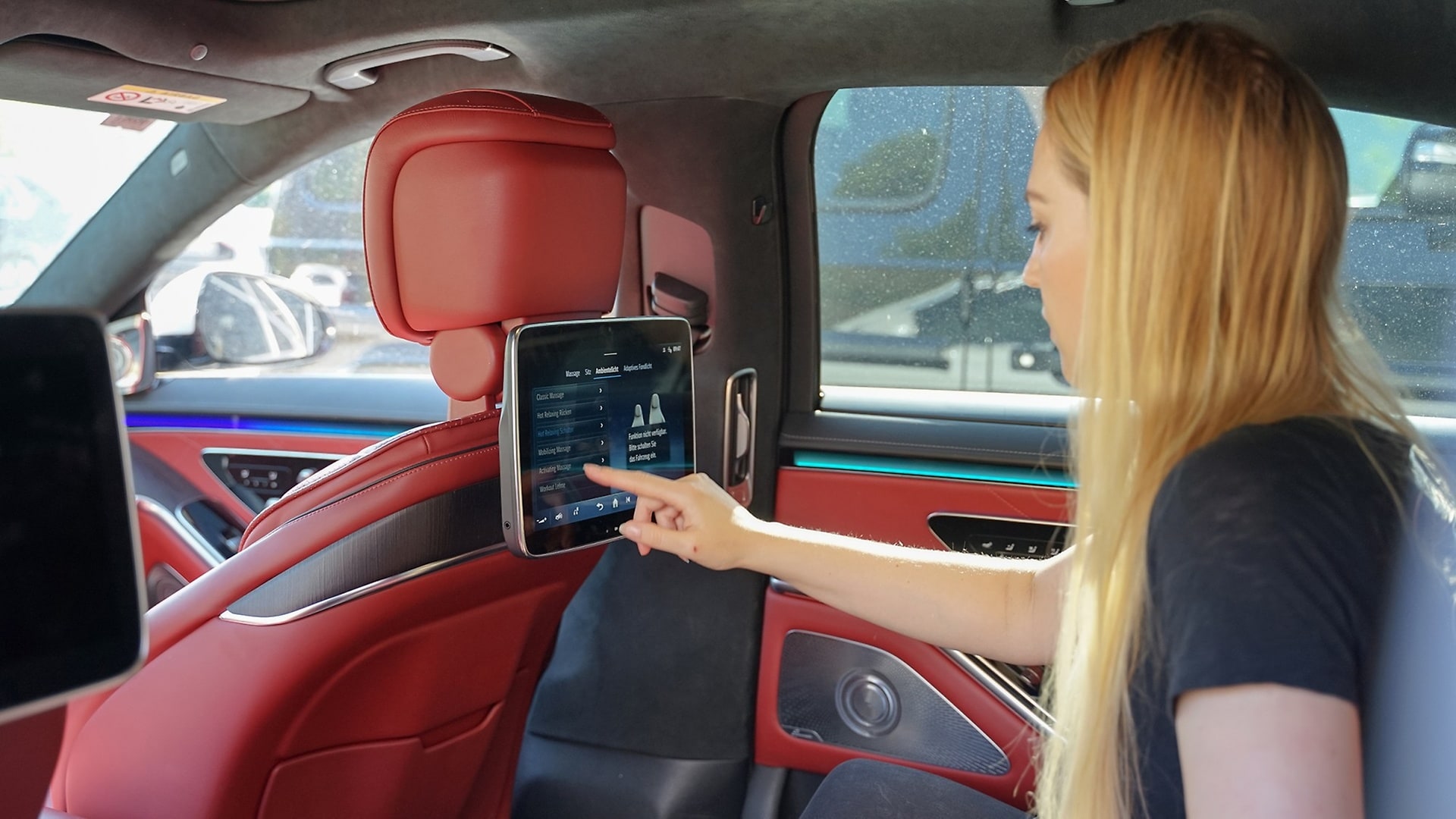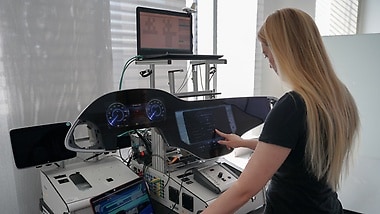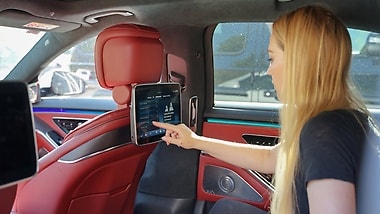How is your department set up?
We all have different areas of expertise. The UI department includes psychologists, human factors experts, cognitive scientists, biologists, neurologists, linguists, interaction designers and media technologists. As such, many different people are working on issues around how navigation, transmission modes and many other things can be operated more intuitively. We share information with each other, ask each other for advice, and work on the MBUX infotainment system together. We also have our own UI software that we use to share information with the product owners, who deal with software-related matters even more intensively.
What originally brought you to Mercedes-Benz?
I have always been interested in cars, and they have always been a major topic of discussion for my family as well. Technology has also fascinated me for as long as I can remember, as have the differences between what people think and what they do. After I finished my undergraduate studies in psychology, I looked for a field of application where humans and technology played a major role. This is how I arrived at the "Human Factors" program of study, which focuses directly on people as a factor in the context of technological developments. This fits perfectly with the fact that Mercedes-Benz was increasingly shifting its focus towards people in the context of vehicle development – and was looking for experts like me, whose primary task is to make cars more intuitive, in order to accomplish this.
You started out working on the specifications for various maintenance concepts at the company and were then responsible for things including the display for the G-Class and gestural interaction. Can gestures be interpreted unambiguously in an international context?
That's a very interesting topic. On the one hand, non-verbal communication is shaped very strongly by culture – which is the case for many gestures we might make automatically, for example. Gestures like these are unhelpful in the vehicle, since I could then activate processes accidentally. On the other hand, it is also a question of personality – whether someone gestures a great deal, or only very little. We make sure that users do not need to learn any new gestures. Instead, we look for neutral gestures that are not yet used. Sometimes, for example, the driver will reach for the overhead light or place a bag on the passenger seat. The interior assistant recognises intuitive gestures and turns the relevant light on automatically when the hand moves towards it. This is intended to function in essentially the same way worldwide, and we only need to make slight adjustments for individual countries sometimes.
A learning system like MBUX is based on artificial intelligence and progressively adapts itself to users over time. What advantages does this offer in regard to the comfort of driving?
We want to take the burden off the users. The vehicle now increasingly supports individualised use. Not every person is the same, and neither is every driving situation. The system can learn how a user drives and operates the system situationally. If you say, "Call my boss", then it saves who the manager is, just as it would save the manager of another driver. The voice control also learns continuously in regard to aspects like distinguishing accents.
,xPosition=0,yPosition=0)




,xPosition=0.5,yPosition=0)